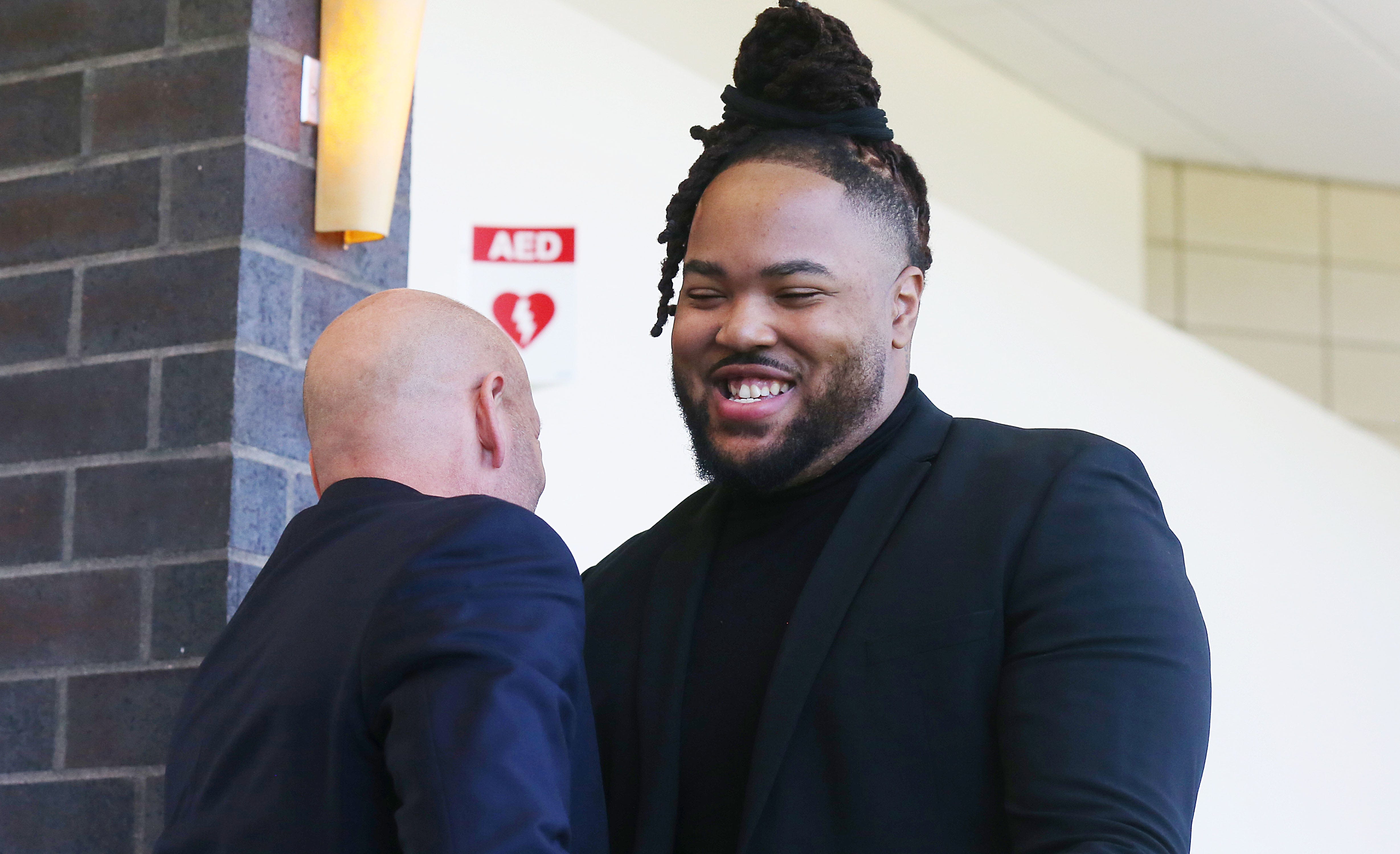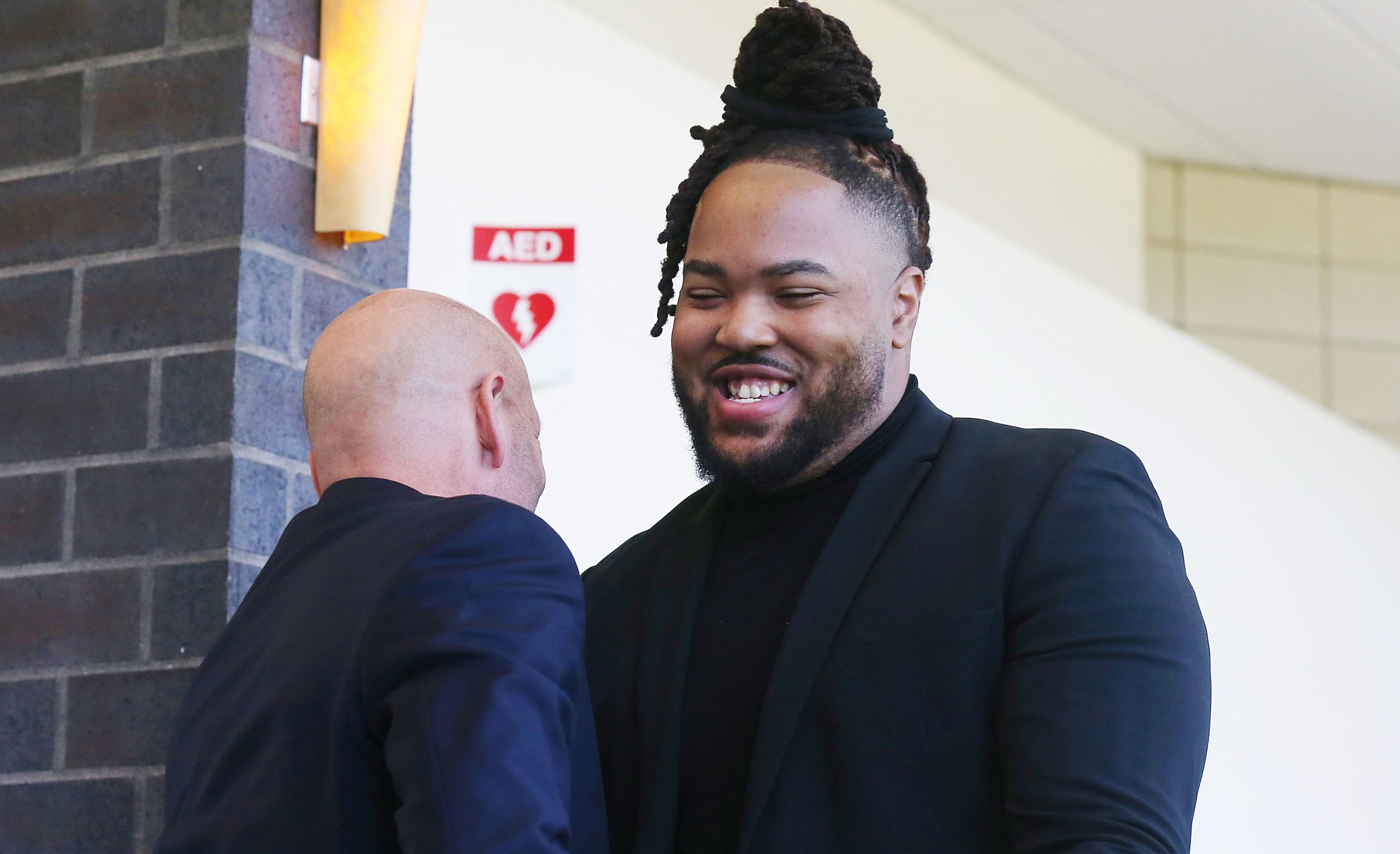
The creator of a tool that monitors online betting blocked the Iowa Division of Criminal Investigation from employing the software after agents used it to probe college athletes’ gambling and build a criminal case against them, attorneys for the players said in a court motion Tuesday.
According to the defense attorneys’ filing, GeoComply cut off the DCI’s access to its system on Jan. 26 after prosecutors brought charges against 25 athletes and student managers. The prosecutors have relied on evidence that a DCI agent gathered using GeoComply’s tool, Kibana, which shows gambling activity linked to cellphone locations.
The lead investigator, DCI agent Bran Sanger, testified in a January deposition that he did not apply for a search warrant before using Kibana, according to the defense attorneys. The lawyers for the players asked a judge in a motion Tuesday to suppress any evidence that the DCI gathered from Kibana, arguing that his use of the tool violated their clients’ Fourth Amendment protection against unreasonable searches.
According to the motion, GeoComply told members of the Iowa Racing and Gaming Commission that the company was going to cut off the DCI’s access to Kibana in October, a decision that the company allegedly carried out last month.
“It had come to their attention that DCI may have exceeded the intended outlined scope of its Kibana access-and-use privileges,” attorneys Van Plumb, Matt Boles, Tyler Alger, Christopher Sandy and Michael Sandy wrote in the joint motion on behalf of four defendants.
The lawyers also argued Tuesday that a judge should suppress any information that the DCI gathered from interviews with the players. According to a previous court motion, a DCI agent testified that he incorrectly told an athlete before an interview that the athlete was not the target of a criminal investigation.
The athelete was a client of Sandy, and the other lawyers said in Tuesday’s filing that DCI agents also told their clients that they weren’t targets of criminal probes. Those statements, that lawyers said, violated the players’ Fifth Amendment right against self-incrimination. The attorneys added that the DCI agents failed to read the players their required Miranda rights, which include instructing them of their right to remain silent.
“The coercive conduct and promises of leniency by the officers make any statements made involuntary, against free will, and contrary to Defendant’s constitutional rights,” the lawyers wrote.
The attorneys represent former Iowa State running back Jirehl Brock, wrestler Paniro Johnson, defensive lineman Isaiah Lee and defensive end Eyioma Uwazurike. The Denver Broncos drafted Uwazurike in the fourth round of the 2022 NFL draft, but the league suspended him last year when news of the gambling investigation broke.
Representatives of GeoComply and the DCI did not immediately respond to emails from the Des Moines Register emails seeking comment Tuesday. On Jan. 31, the DCI defended its investigation in a statement, with a spokesperson for the division saying that “the Department of Public Safety conferred with legal counsel to ensure lawful access to and use of the technology.”
“The evidence was obtained in a constitutionally permissible manner,” the spokesperson said. “Ultimately it is up to the courts to decide. We want to reassure Iowans that the Department always strives to scrupulously uphold the laws and constitutions of the United States and the State of Iowa.”
Iowa Attorney General Brenna Bird told WHO-13 on Jan. 23 that she was not concerned about whether the DCI acted under proper authority.
“Those cases aren’t in my office,” she said. “And my understanding was the investigation was done by DPS, so they would be the ones that could answer that question.”
A husband and wife who worked in the gambling industry launched GeoComply about a dozen years ago as online betting became more popular, according to the Wall Street Journal. The tech company uses Wi-Fi signals, GPS and cell-tower signals to identify where users of sportsbooks like FanDuel and DraftKing are placing bets. Among other uses, the service is supposed to ensure that betters are in the states where they claim to be ― an important consideration beause gambling laws vary by state.
According to the defense attorneys, GeoComply helps the Iowa Racing & Gaming Commission ensure that sportsbooks enforce state gambling rules. They have said that GeoComply representatives trained DCI agents on how to use the software in 2022.
In Tuesday’s filing, the attorneys wrote that Sanger used Kibana to see whether people inside Iowa State athletic buildings were placing bets. After he detected betting, the DCI subpoenaed sports books to get the names of the account holders tied to those bets. Sanger also received information on the credit cards and debit cards associated with those accounts.
In some cases, that led to charges of identity theft because the players allegedly placed bets with accounts that belonged to other people, such as their mothers and girlfriends. Prosecutors also filed underage gambling charges against some defendants. Gamblers must be 21 to place bets in Iowa.
Tyler Jett is an investigative reporter for the Des Moines Register. Reach him at [email protected], 515-284-8215, or on Twitter at @LetsJett. He also accepts encrypted messages at [email protected].
